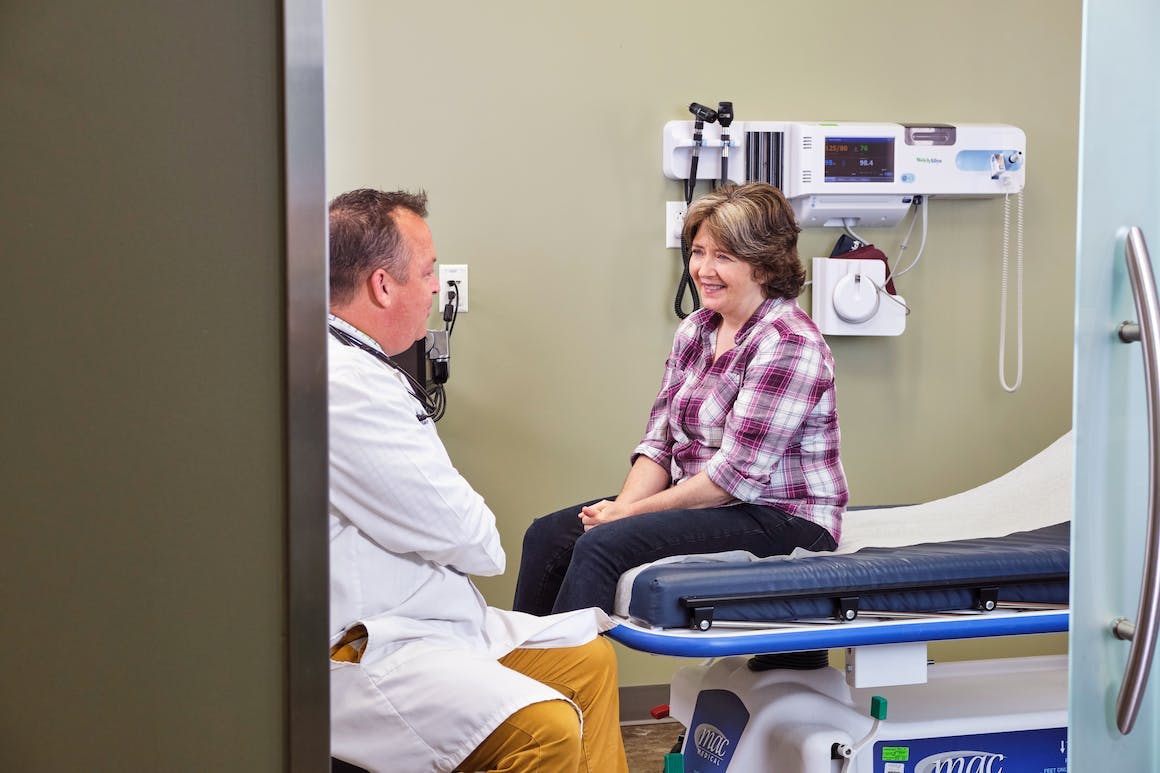If you have asthma, it is important that you work closely with a healthcare provider to help manage your symptoms and prevent asthma attacks.
When you visit the urgent care for asthma symptoms, the providers begin by collecting a patient history. This includes questions about exposures to allergens and other asthma triggers, and about any family members’ asthma diagnoses.
Part of your visit will include a physical exam. Your provider will listen carefully to your breathing with a stethoscope, and check your skin for related problems like eczema.
Your provider will also want to see how well your lungs are working by offering non-invasive breathing tests that can help determine if you have asthma.
If asthma exacerbation is confirmed, the provider can provide on-site nebulizer treatment for asthma or prescribe an inhaler. They can also discuss preventative measures, such as a stepwise approach, that can help you manage your asthma treatment at home based on your current symptoms to prevent future asthma attacks.
The eventual goal of stepwise treatment is to reduce asthma medications as much as possible, while keeping you symptom-free. This requires a “step up” or “step down” approach with medications and other treatments to figure out what works best to keep you breathing-free.
If you are having a severe asthma attack, you should go directly to the emergency room for immediate care.





